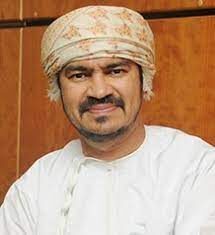We are here as guests to present our point of view on green hydrogen as the fuel of the future, says Pankaj Khimji.
The resource-rich Oman, strategically located at the mouth of the Gulf, is among a handful of non-G20 countries invited by India for the G20 summit, which underscores Oman’s role in the region and its special ties to New Delhi. In an interview, Pankaj Khimji, Sherpa to the Sultanate of Oman, speaks about steps needed to strengthen the relationship between Oman and India and his expectations from India’s G20 presidency. Looking ahead, Khimji, the Foreign Trade and International Cooperation adviser at the Ministry of Commerce, Industry and Investment Promotion, talks about the potential of an Oman-India Free Trade Agreement and India’s leadership in green hydrogen. Khimji, the wealthiest person of Indian origin in Oman, a scion of Oman’s illustrious Khimji Ramdas family and the President of the Oman-India Business Association, also highlights Oman’s experience in promoting between nations, which can help build bridges in a polarised world. Excerpts from the interview:
Q: What are Oman’s expectations from India’s G20 presidency?
A: Our expectation is to learn, absorb, and imbibe the best practices that we consider suitable for Oman’s economic development. The Sherpa track addresses a variety of issues and subjects, particularly those related to finance, some of which are relevant to other nations as well. Our goal is to ensure that our thinking is aligned with that of the developed and developing world represented in the Sherpa meeting. Understanding how they think, what drives their thinking, and the internal challenges they face is crucial. It’s important to appreciate what has made them successful economies. As a small, fast-developing nation, we aspire to become a developed economy ourselves. We need to observe, appreciate and learn from their experiences to achieve our goals.
Q: This is the first time that Oman has been invited to participate in a G20 summit. In addition, India has extended invitations to other countries in the Gulf and Arab regions to the G20. What does this mean for Oman and Arab countries to participate in this process?
A: It’s a great feeling to be seen hobnobbing and rubbing shoulders in an exclusive setting. G20 isn’t a UN assembly or a WTO summit, where every nation represents itself and its interests. Here, we’re all gathered with a specific agenda in mind—social, economic, and political, but primarily economic. The focus is so sharp that the learning and understanding process is much better. This is what makes this experience so special.
Q: India is working hard to promote consensus on Ukraine in G20. The Russia-Ukraine war has had a profound impact on food, fertilizer, and fuel supply chains, creating chaos in its wake. This issue is also on the agenda for the G20 summit. In this polarized world, how do you view India’s capacity and leadership to act as a bridge builder?
A: Oman plays an important role on the global stage as an interlocutor. We are not peacemakers, but we are good neighbours and believe in being friends to everyone and enemies to none. Over the past four decades, Oman has maintained cordial relationships with all sides in conflicts such as those in Iran and Yemen. The idea is always to pursue dialogue, and we see India as a responsible nation that shares this belief. Dialogue is the mechanism for a peace process, not conflict. Even after conflict, differences can only be sorted out through dialogue, and Oman has been living by this principle for the past five decades. We appreciate India’s contribution to this approach, and if that is what India is aiming for, we are fully in agreement.
Q: Besides Oman’s experience with peace-making, what exactly does Oman bring to the G20 table?
A: We are here as guests to present our point of view on green hydrogen as the fuel of the future, following the dominance of hydrocarbons over the past five decades. We strongly believe in green hydrogen and wish to share and gain experience from those who have expertise in this area. The technology behind green hydrogen, whether it involves ionisation, desalination, or conversion to urea, will be of utmost importance. Commercial production of green hydrogen has not yet been achieved, so our goal is to identify nations that are leading in this field and able to contribute. Oman will be closely examining latest developments in this area and how the G20 can make a difference.
Q: Looking ahead, how do you envision enhancing Oman-India cooperation bilaterally as well as in the multilateral arena?
A: Oman and India have shared cultural, social, and economic ties that go back 5,000 years, creating a very special relationship founded on mutual respect beyond comprehension. To further deepen this relationship, we are initiating a dialogue to explore opportunities for an FTA (Free Trade Agreement), CEPA (Comprehensive Economic Partnership Agreement), or PTA (Preferential Trade Arrangement), which we hope to carry forward. Additionally, we are interested in exploring India’s involvement in the hydrogen trade, particularly in the solar field, as we strongly believe in the One Grid One World One Sun initiative proposed by Prime Minister Narendra Modi. We consider linking to the West via Oman as the most logical approach to achieve this goal. Oman and India have already a strong bond, but there is always scope for finding new avenues and opportunities in this special relationship.
Manish Chand is CEO, Centre for Global Insights India, a think tank focused on global affairs. He is Editor-in-Chief, India Writes Network and India and the World.

